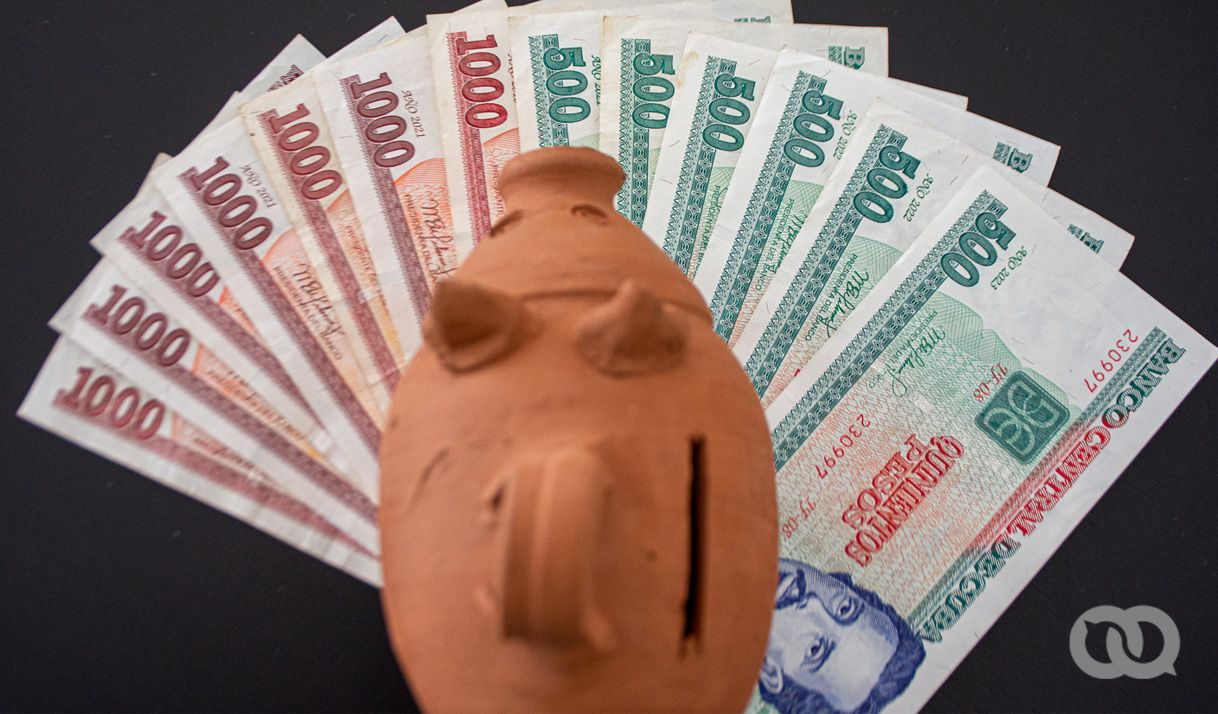The Cuban economy has been tackling high two/three-digit inflation for many years, according to the government’s ONEI, which is well above the moderate levels found elsewhere in the world.
Why is there rampant inflation on the island, and what measures could help to keep it in check?
Cuban economist Pavel Vidal analyzed the causes of the problems that are hitting Cuban pockets hard. He also offered some possible solutions.
Rampant fiscal deficit
Cubans are hearing the term “fiscal deficit” (when State revenues aren’t enough to cover basic needs in social programs), often. According to official statistics, the deficit is estimated to stand at 68.1 billion pesos by 2023. This means that the country will only be able to cover 81% of planned expenditure, explained the Minister of Finances and Prices, Vladimir Reguiero Ale.
The main reason for rampant inflation in Cuba – in economist Pavel Videl’s opinion – lies in the huge fiscal deficit that the Cuban Government has been juggling for many years, which is well above levels internationally recognized as sustainable.
This gigantic budget imbalance in Cuba is funded by directly injecting money into the economy; in other words, Cuba’s Central Bank issues pesos (physical or digital currency) to cover the Government’s fiscal deficit. This massive cash injection without the backing of production is what is making inflation spiral.
Even though the COVID-19 pandemic had a negative impact on revenue, rampant inflation in Cuba doesn’t follow temporary or transitory factors such as COVID-19, but rather has structural causes firmly rooted in Cuba’s economic model and its external and internal imbalances.
“Cuba’s fiscal deficit was above 8% in the two years leading up to the pandemic,” Videl explains. “With COVID-19, the deficit went up to approximately 17% of the Gross Domestic Product (GDP) and the National Assembly recently announced that the fiscal deficit stands at 11%. The deficit is very distorted and is also being financed with monetization.”
According to different economists’ calculations, inflation in Cuba is about 200% compared to 2022. Meanwhile, the population translates inflation building-up since 2021 in the way prices have gone up tenfold today.
Incompetent state-led companies, an additional scourge
Another domestic factor that influences accelerating inflation are loss-making and unproductive state-led companies, which the Government subsidizes so they can remain “active”.
In late 2022, 40% of state-led companies in Cuba were making a loss and had very low or zero efficiency. In March 2023, a total of 285 of these were still reporting losses.
Many of these “zombie” companies are only open to carry out social or political tasks, even though they generate big-time losses and are a great burden to the national budget and economy.
Growing state subsidies for unviable companies and inflated payrolls at these companies and State offices mean the country’s anemic public finances are constantly bleeding out, which contributes to the out-of-control deficit.
“It’s a sector with little potential because many state-led companies don’t generate revenue and others only receive subsidies,” noted Vidal, also a professor at the Pontifical Xavierian University in Cali (Colombia).
Vidal says that a solution to the heart of Cuba’s inflation problem lies in a radical reform of Cuba’s state-led sector, which is highly inefficient and with a very limited production capacity.
After decades of centralized and bureaucratic management, it’s become more than clear that the State isn’t an efficient administrator of retail businesses and that the companies under Government management lack incentives, innovation, the business mindset and vision of the private sector, a lot of the time.
The statist approach – excessive political control over management decisions and ideological restrictions on the free market – stops businesses owned by the Cuban State to work efficiently and make a profit.
The private sector’s potential
The Cuban economist sees huge potential in expanding and boosting the small and medium-sized private business sector (MSMEs), which have displayed a great capacity to innovate, compete, grow and even reach international markets, in a very short period of time.
Despite restrictions on accessing foreign suppliers and using bank payment methods (which includes the effect of US sanctions), MSMEs have displayed much more energy, efficiency and flexibility than the rigid and paralytic features of large companies owned by the State. For this reason, their growth should be a priority in economic reforms on the island.
“MSMEs have had to adapt to a situation of high inflation and the exchange rate’s devaluation. The State has slowly been withdrawing from some imports, MLC (magnetic dollar) stores almost have nothing on sale and the State is just the one that provides subsidized goods and services (the good guy in the movie). The private sector is the one facing the music with the Cuban people because that’s where inflation and the peso’s devaluation can be seen,” he explains.
“They are working in this economy and, of course, they are embedded in inflationary processes and the devaluation of the Cuban peso, as well as contributing to further inflation and devaluation. But you can’t lose sight of the root problem: excess money without a foundation, imbalance, standstill, the lack of credibility foreign creditors have of state institutions and the structural crisis of the Cuban economic model.”
Nor is foreign currency available on the formal market for MSMEs and it’s sad because there’s a lot of economic activity that could be happening.
Vidal underlines the fact that Cuban MSMEs have managed to create innovative import/export procedures (the latter on a small scale), despite all the restrictions they face. A more favorable government policy and greater availability of foreign currency on the formal market would help export MSMEs to become a factor that would help increase revenue significantly from sales abroad (if they are allowed to grow and become large companies).
Urgent, but delayed economic reforms
Pavel Vidal believes that the critical economic situation in Cuba is the result of delaying a series of urgent economic reforms, that the Government has refused to implement.
From all of these delayed reforms, the Cuban economist highlights radical business reform that ends subsidies to incompetent state-led companies, forcing them to run efficiently or declare bankruptcy. Tourism, food production and the energy sectors need to be a priority.
Also, currency reform is needed to stop the excessive printing of money without a solid foundation and a trustworthy and consistent policy for national and foreign investors that offers legal security and clear signs that counter-reforms won’t follow, like they did in the past.
The delay of these structural reforms only makes the imbalance worse, so today’s economic crisis seems like it’s reached a turning point that forces us to make greater changes.
According to Vidal, the key to controlling accelerated inflation lies in applying a strict program of fiscal adjustment that will drastically reduce the island’s chronic budget deficit. The above would mean cuts and streamlining public expenditure, especially when it comes to subsidies for unprofitable state-led companies that need to be restructured or closed down.
It also means redirecting social expenditure more efficiently, focusing on direct cash subsidies to vulnerable families and not on products or to companies.
“The solution to the national fiscal deficit has to insist on giving subsidies to families and not to companies,” he says.
The experience of “financial healing measures” in the 1990s and the fiscal adjustment during reforms implemented by Raul Castro prove that you can lower the deficit to moderate levels in Cuba, but a macroeconomic stability program needs to be implemented as soon as possible.
Realistic solutions vs. half-hearted measures
Faced with Cuba’s complex economic crossroads, Vidal says that pragmatic, and not dogmatic, solutions are needed. It’s delusional to try and resolve the current crisis with the same centralized recipes that have perpetuated this unproductive model that we’ve had in recent decades.
A comprehensive program of economic reforms is needed to overcome the inflation crisis, that deals with the badly damaged fiscal accounts, transforms the incompetent state-led business sector, promotes the expansion of small and medium private enterprises in Cuba, and attracts large investments that are desperately needed to create new job positions and increase the flow of foreign currency into the country.
The usual half-hearted measures, cosmetic changes and forced banking services won’t stop inflation or the informal market. These problems stem from much more deeply rooted economic problems that are structural.
Cuba needs “heavy surgery” to overcome the crisis and once again step onto the path to sustainable recovery.
This article was translated into English from the original in Spanish.










comments
We moderate comments on this site. If you want to know more details, read our Privacy Policy
Your email address will not be published. Mandatory fields are marked with *